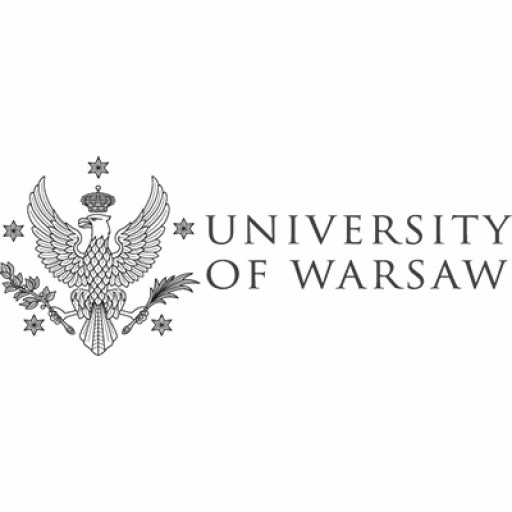Photos of university / #uofglasgow
Asset Pricing and Investment at the University of Glasgow offers students an in-depth understanding of the fundamental principles and contemporary issues in financial markets. This programme is designed to equip students with a robust knowledge of asset valuation, portfolio management, financial derivatives, and investment strategies, preparing them for a dynamic career in finance and investment sectors. Throughout the course, students will explore the theoretical foundations of asset pricing models, such as the Capital Asset Pricing Model (CAPM) and Arbitrage Pricing Theory (APT), alongside empirical techniques used to evaluate market efficiency and asset returns.
The curriculum integrates rigorous quantitative methods, enabling students to analyze financial data, develop pricing models, and assess investment risks effectively. Practical skills are developed through case studies, real-world data analysis, and simulation exercises, facilitating a comprehensive understanding of how financial theories are applied in practice. The programme also emphasizes current trends and innovations in financial markets, including behavioral finance, financial technology, and sustainable investing, ensuring graduates are well-versed in contemporary challenges and opportunities.
Students will benefit from close interaction with academic experts who are active researchers in asset pricing and investment, gaining insights into the latest developments in the field. The programme provides opportunities for internships and industry engagement, fostering networks and enhancing employability. Graduates will be well-prepared for careers in asset management, investment banking, financial advisory services, and risk management, or to pursue further academic research in finance. With its rigorous curriculum and strong industry links, the Asset Pricing and Investment programme at the University of Glasgow offers an excellent foundation for aspiring finance professionals seeking to excel in a competitive global market.
The MSc in Asset Pricing and Investment at the University of Glasgow offers a comprehensive curriculum designed to equip students with a deep understanding of financial markets, investment strategies, and asset valuation techniques. This programme provides a rigorous exploration of core concepts in asset pricing, including key theories such as the Capital Asset Pricing Model (CAPM), Arbitrage Pricing Theory (APT), and multifactor models. Students will examine the principles underlying the valuation of different asset classes, including equities, bonds, derivatives, and alternative investments.
Throughout the programme, emphasis is placed on quantitative skills, financial modeling, and empirical research methods. Modules focus on the application of statistical and econometric techniques to analyze market data, assess risk, and evaluate investment opportunities. Students will learn to develop and implement investment strategies, manage portfolios, and understand the implications of market anomalies and behavioral finance. The curriculum also covers the regulatory environment surrounding financial markets and ethical considerations in investment decision-making.
In addition to theoretical foundations, students engage in practical applications through case studies, financial software tools, and industry projects. These experiences seek to prepare graduates for careers in asset management, investment banking, financial consultancy, and research. The programme benefits from the expertise of faculty members who are active researchers and practitioners in the fields of finance and investment, ensuring that coursework remains relevant to current industry trends.
Furthermore, students have access to the university's extensive resources, including financial databases, trading simulations, and guest lectures from industry professionals. The programme encourages critical thinking, analytical rigor, and professional development, fostering the skills necessary to succeed in dynamic and competitive financial environments. Graduates will leave with a robust understanding of asset pricing models, investment analysis, and portfolio management strategies, positioning them for successful careers in the finance sector or for further research at the doctoral level.
Program requirements for the Asset Pricing and Investment MSc at the University of Glasgow include a strong academic background in relevant disciplines such as finance, economics, or mathematics. Applicants are typically expected to hold an undergraduate degree in one of these areas, with a minimum of second-class honours or equivalent. Work experience in investment or financial analysis is considered advantageous but is not mandatory. Proficiency in quantitative skills and familiarity with financial markets are essential for success in this programme. Applicants must demonstrate a good command of English language, usually through standardised tests such as IELTS or TOEFL, meeting the minimum score requirements specified by the university. The application process requires submitting official academic transcripts, a personal statement outlining motivation and relevant experience, and references from academic or professional sources. Additional criteria may include a CV that highlights relevant skills and experiences in finance or investment sectors. The programme also encourages applicants to have basic knowledge of financial theories and the use of statistical software. International students are advised to check specific visa and language requirements well in advance of the application deadline. Certain entry requirements may be flexibly interpreted for applicants with substantial professional experience or qualifications deemed equivalent to academic achievements. The university promotes diversity and inclusivity in its admissions process, focusing on academic merit, potential, and the applicant’s motivation to pursue advanced studies in asset pricing and investment. Prospective students should consult the official university admissions page for the most current and detailed entry requirements, as they may vary slightly from year to year.
Fundings for the Asset Pricing and Investment program at the University of Glasgow are primarily covered through a combination of tuition fees, potential scholarships, and financial aid options available to both domestic and international students. The program is designed to equip students with advanced knowledge of financial markets, investment strategies, and asset valuation techniques, preparing them for careers in finance, asset management, and investment banking. Tuition fees vary depending on the student's residency status, with detailed figures provided on the university’s official website. The university offers a range of scholarships and bursaries, some of which are specifically targeted at students pursuing finance-related postgraduate degrees. Applicants are encouraged to explore the university’s scholarship portal for the most current opportunities, including merit-based awards and need-based financial support. Additionally, students may access external funding sources such as government loans, private loans, or corporate sponsorships, especially for international students. The university also provides guidance and support services to help students navigate the application process for financial aid. As typical for postgraduate finance programs at the University of Glasgow, the program may also offer part-time study options, allowing students to work while studying, thereby generating income to offset educational expenses. The university emphasizes its commitment to accessibility and affordability, constantly updating financial options to ensure talented students from diverse backgrounds can pursue their education. While specific details about the exact total cost of the program are available upon inquiry or via the university’s website, students are advised to consider additional expenses such as textbooks, materials, and living costs, which are an integral part of funding considerations. Overall, funding the Asset Pricing and Investment program involves a combination of university-provided financial aid, external sponsorship, personal savings, and potential part-time employment, ensuring students can focus on their academic and professional development during their studies.
The Asset Pricing and Investment program at the University of Glasgow is designed to provide students with a comprehensive understanding of financial markets, investment strategies, and the principles of asset valuation. This program covers a broad range of topics including quantitative finance, financial econometrics, risk management, portfolio theory, and the behavioral aspects of investment decision-making. Students will gain practical skills in analyzing financial data, modeling asset prices, and developing investment strategies that are applicable in real-world scenarios.
The curriculum combines theoretical foundations with practical applications, ensuring that graduates are well-equipped to pursue careers in asset management, investment banking, financial analysis, and related fields. The program emphasizes the development of critical thinking and analytical skills necessary for evaluating market trends and making informed investment choices. Students will also explore regulatory and ethical issues in finance, as well as emerging trends driven by technological innovation such as fintech and algorithmic trading.
Teaching methods include lectures, seminars, case studies, and computer-based modeling exercises. The faculty members are experienced researchers and practitioners in the field of finance, offering insights that bridge academic theory with industry practice. The program often collaborates with financial institutions to provide students with internship opportunities and real-world projects, enhancing employability upon graduation.
Furthermore, the program is supported by state-of-the-art facilities and resources, including access to financial databases and statistical software. Graduates of the program will be prepared for a variety of roles within the finance sector, including asset manager, financial analyst, risk manager, and investment consultant. The University of Glasgow's strong reputation and extensive alumni network also provide valuable connections within the financial industry, aiding students in their career development.
Overall, the Asset Pricing and Investment degree offers a rigorous and comprehensive education for those interested in understanding how financial markets operate and how to develop effective investment strategies. It aims to cultivate analytical and practical skills that are highly valued by employers in the competitive finance industry, making it an excellent choice for aspiring finance professionals seeking a solid foundation in asset pricing and investment management.








